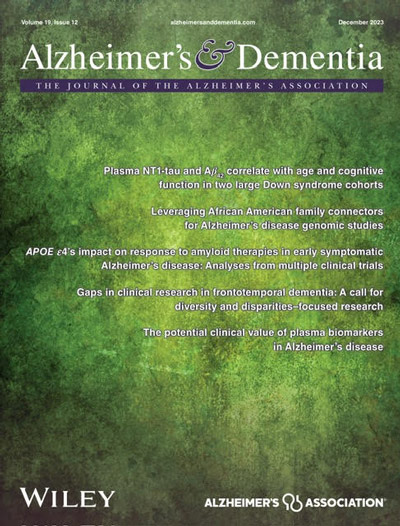Dementia caregiving in India: New evidence from a National representative sample
Abstract
INTRODUCTION
As India's population ages, the prevalence of dementia is increasing rapidly, inducing higher need for informal caregivers for a complex population. However, the effects of individuals' cognitive impairment on their caregivers' well-being in India have not been well studied.
METHODS
We analyzed data from 4196 informants of participants in the Longitudinal Aging Study in India-Diagnostic Assessment of Dementia (LASI-DAD). Informants' caregiving roles and well-being, including stress, mental health, positive affect, and spirituality, were assessed alongside the cognitive function and dementia status of LASI-DAD respondents.
RESULTS
Informants of individuals with cognitive impairment experienced significantly higher stress, poorer mental health, and lower levels of positive affect and spirituality. Greater caregiving responsibility intensified the negative impact on well-being.
DISCUSSION
These results demonstrate the significant emotional and psychological strain on dementia caregivers in India, underscoring the need for targeted interventions and support structures.
Highlights
- We used a dual data collection approach in LASI-DAD to create a first-of-its-kind linked dataset on care recipients' and caregivers' outcomes, representative of Indian older adults.
- Using this dataset, we tested whether cognitive impairment in care recipients increased informants' stress and lowers well-being, with greater caregiving responsibility amplifying these effects.
- Informants of cognitively impaired individuals reported significantly higher stress, poorer mental health, and lower positive affect and spirituality, with stronger effects for those with greater caregiving roles.
- Non-primary caregivers also experienced well-being declines when assisting a cognitively impaired older adult, likely driven by family disruptions and added household responsibilities for co-residents and logistical challenges and reduced control for those living separately.
- Our findings highlight the widespread emotional and psychological strain of dementia caregiving in India, emphasizing the need for targeted support and interventions.

 求助内容:
求助内容: 应助结果提醒方式:
应助结果提醒方式:


